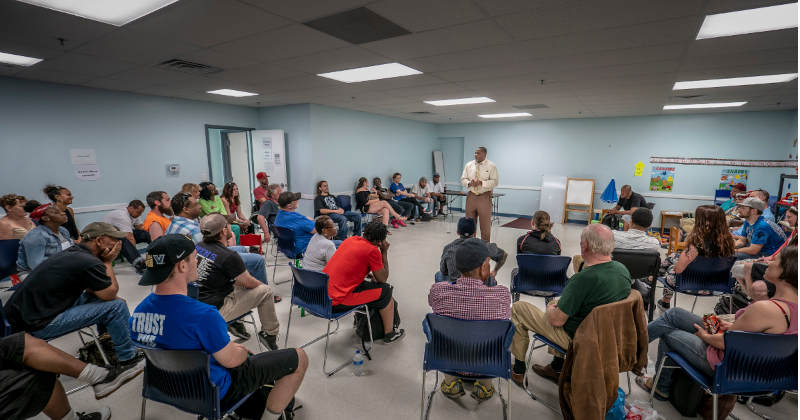“Grace, respect, reserve, and empathetic listening are qualities sorely missing from the public discourse.” Meryl Streep
“When lying, be emphatic and indignant, thus behaving like your children.” William Feather
Those two quotes pretty much sum up the underlying causes of many of our problems: too little empathic listening and too much emphatic shouting.
In a previous post on empathy, Humility, Inquiry and Empathy, I referenced an Ezra Klein interview with Robert Wright, the author of Nonzero. In that interview, Wright discusses the unacknowledged limits of our knowledge, and exposes the hollowness of our justifications. He concludes that the real tragedy in ill-fated wars is the profound misjudgments about our power, our limits, and the effectiveness of occupations. Wright implores us to remain alert to the harms of being present where we don’t belong, where we believe we have moral authority, and when we think a military solution will work. While we shout emphatically about the unerring correctness of our decisions, we fail miserably in our empathic understanding of the consequences.
In another post on Pain and Empathy, I quote Krista Tippitt, the NPR broadcast host of On Being. On one long drive across the country, my wife and I listened to interviews she conducted with Mary Oliver, Mary Karr, Naomi Shihab Nye, David Brooks, Ellen Langer, Thich Nhat Hanh and many others. All of these award-winning authors and poets were discussing, from their particular frame of reference, the relationship between pain and empathy and the importance of context and perception – about the importance of entering fully into another frame of reference.
Reflecting on these posts and conversations, it struck me that the underlying cause of many of our overlaying issues is our culturally reinforced tendency to be more emphatic than empathic. Here are some questions that helped me explore this idea more deeply:
- What is vehement religion but emphatic righteousness?
- What is forceful rape but emphatic superiority?
- What is ardent nationalism but emphatic exceptionalism?
- What is wholehearted belief but emphatic certainty?
- What is unqualified, unconditional support, but emphatic blindness?
- What is 100% clarity but emphatic decisiveness?
On the other hand:
- What is compassionate understanding, but empathic love?
- What is gentle affection but empathic warmth?
- What is gracious sensitivity but empathic mercy?
- What is charitable kindness, but empathic benevolence?
- What is friendly consideration but empathic perceptiveness?
- What is magnanimous acceptance, but empathic good nature?
- What is a tender feeling but empathic disposition?
You can see from these questions where my bias is. I clearly see empathic listening as preferable to emphatic shouting.
Two books I recently read reinforce my emphatic preference for being empathic.
The first book, James, by Percival Everett, who also wrote Erasure, the book on which the movie American Fiction was based, is told from the frame of reference of the enslaved Jim in Mark Twain’s book, The Adventures of Huck Finn. In this book, Everett puts James at the center of the classic tale. I found the book thrilling, soulful, horrifying, and humorous. It is brilliantly crafted and powerfully told.
The title is the first indication of why being empathic yields dramatically better and more humane results. Jim is the name given to James by his slaveholder. James is the name he has given himself and the name his friends and family call him. In all their emphatic declarations and decisions, the slave holders dehumanize and degrade their enslaved “hands” with names of their own choosing. The book graphically exposes the physical, emotional, intellectual, and spiritual abuses of Southern slaveholders. The enslaved people in the book exhibit far greater empathy among themselves and toward their enslavers than the plantation owners and fugitive hunters do for them. In the latter case, the enslaved person’s empathy deepens their understanding of evil instead of lessening the unforgettable and unforgiving acts of the people dominating and decimating their lives. It’s a chilling account of the differences between emphatic righteousness and empathic compassion.
In the second book, The Demon of Unrest, Erik Larson recalls the history of pre-civil war turbulence and trauma. It is a “saga of hubris, heartbreak, and heroism.” Like James, in Demons of Unrest, black people are nameless victims of an abusive labor system that is causing a corrosive political crisis among white people. In the face of overwhelming evidence to the contrary, Southern slavers emphatically cling to their righteousness. One particularly heinous example was South Carolina Governor, Confederate, and US Senator, James Hammond, who not only sexually abused his four teenage nieces, but also raped and impregnated enslaved women, including the 12 year-old daughter of his black “mistress.” Hammond emphatically justifies his actions by giving his slaves Christmas off and giving a frock to every female who gave birth to a child he would enslave and sell.
In 1858, Hammond declared “Cotton is king,” which was his convoluted way of defending economic and hierarchical dominance. Clearly, all the emphatic claims he makes can’t change the fact that he is completely void of any empathic response.
I’m afraid Meryl Streep had it right when she said grace, respect, reserve, and empathetic listening are sorely missing in our public discourse. Sadly, as William Feather suggests, we are still witnessing emphatic and indignant lying—the very behaviors we implore our children to avoid.
To be clear, I am often guilty of emphatically declaring a point of view. A friend once reminded me that my confidence often exceeded my competence. While I believe that it is important to emphatically promote certain causes and positions, I still believe that those emphatic positions need to be based on empathic understanding.
I’m hoping we can be more emphatically empathetic as we move forward. I’m also hoping we will experience more grace, respect, and reserve in our daily discourse. Finally, I wish our politicians, in particular, would act more like adults than children. May it be so.
Also published on Medium.



Thank you Ricky!❤️